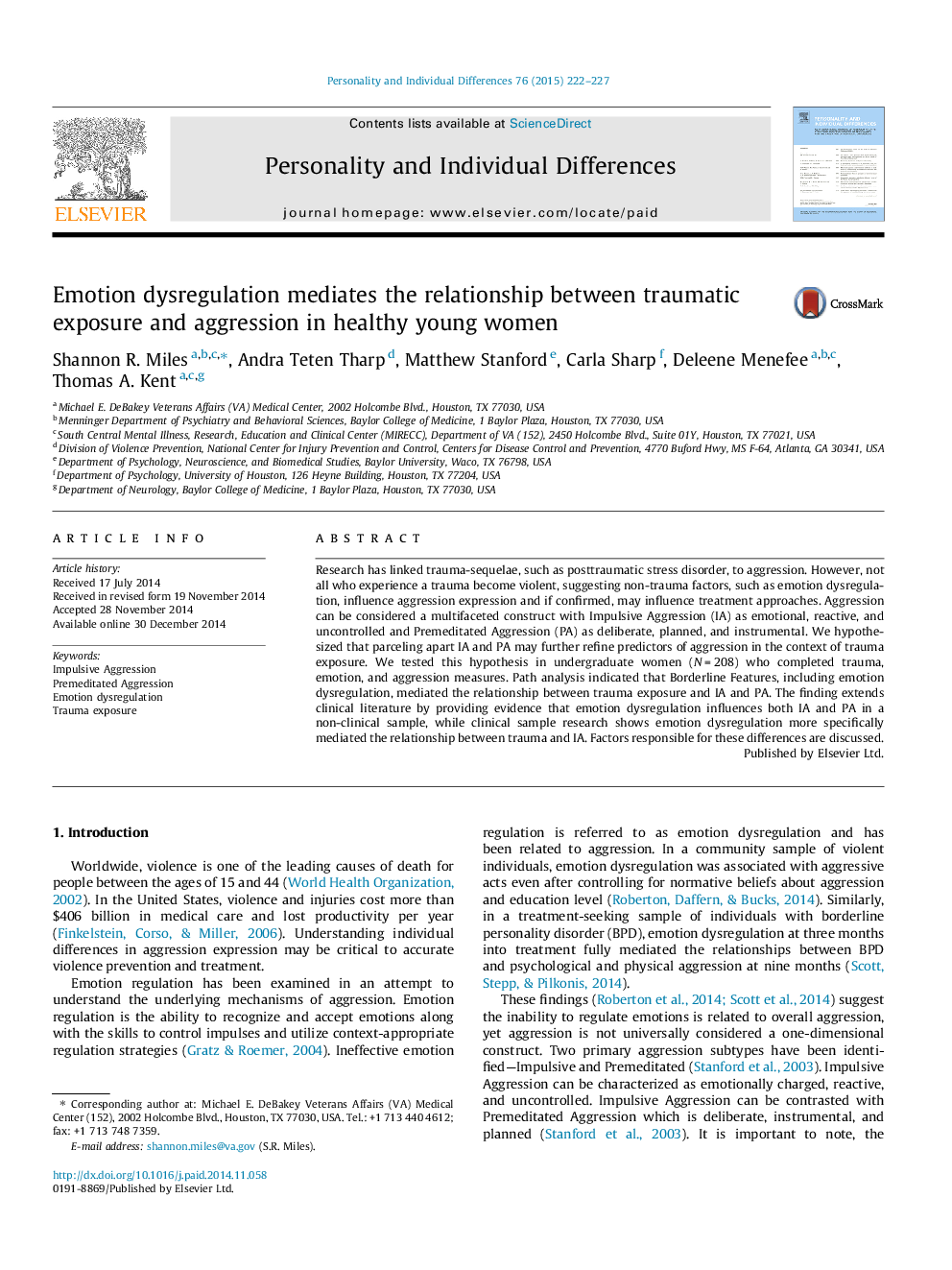| Article ID | Journal | Published Year | Pages | File Type |
|---|---|---|---|---|
| 7251743 | Personality and Individual Differences | 2015 | 6 Pages |
Abstract
Research has linked trauma-sequelae, such as posttraumatic stress disorder, to aggression. However, not all who experience a trauma become violent, suggesting non-trauma factors, such as emotion dysregulation, influence aggression expression and if confirmed, may influence treatment approaches. Aggression can be considered a multifaceted construct with Impulsive Aggression (IA) as emotional, reactive, and uncontrolled and Premeditated Aggression (PA) as deliberate, planned, and instrumental. We hypothesized that parceling apart IA and PA may further refine predictors of aggression in the context of trauma exposure. We tested this hypothesis in undergraduate women (NÂ =Â 208) who completed trauma, emotion, and aggression measures. Path analysis indicated that Borderline Features, including emotion dysregulation, mediated the relationship between trauma exposure and IA and PA. The finding extends clinical literature by providing evidence that emotion dysregulation influences both IA and PA in a non-clinical sample, while clinical sample research shows emotion dysregulation more specifically mediated the relationship between trauma and IA. Factors responsible for these differences are discussed.
Related Topics
Life Sciences
Neuroscience
Behavioral Neuroscience
Authors
Shannon R. Miles, Andra Teten Tharp, Matthew Stanford, Carla Sharp, Deleene Menefee, Thomas A. Kent,
